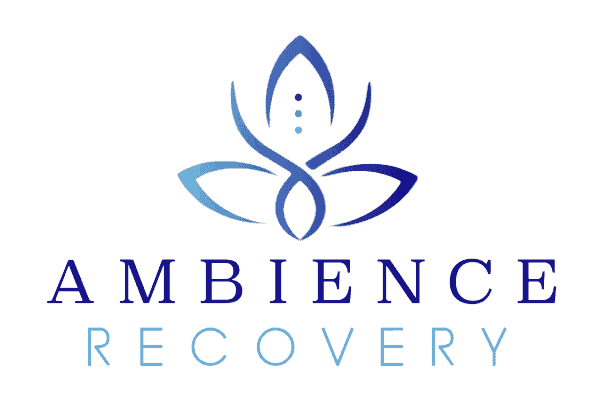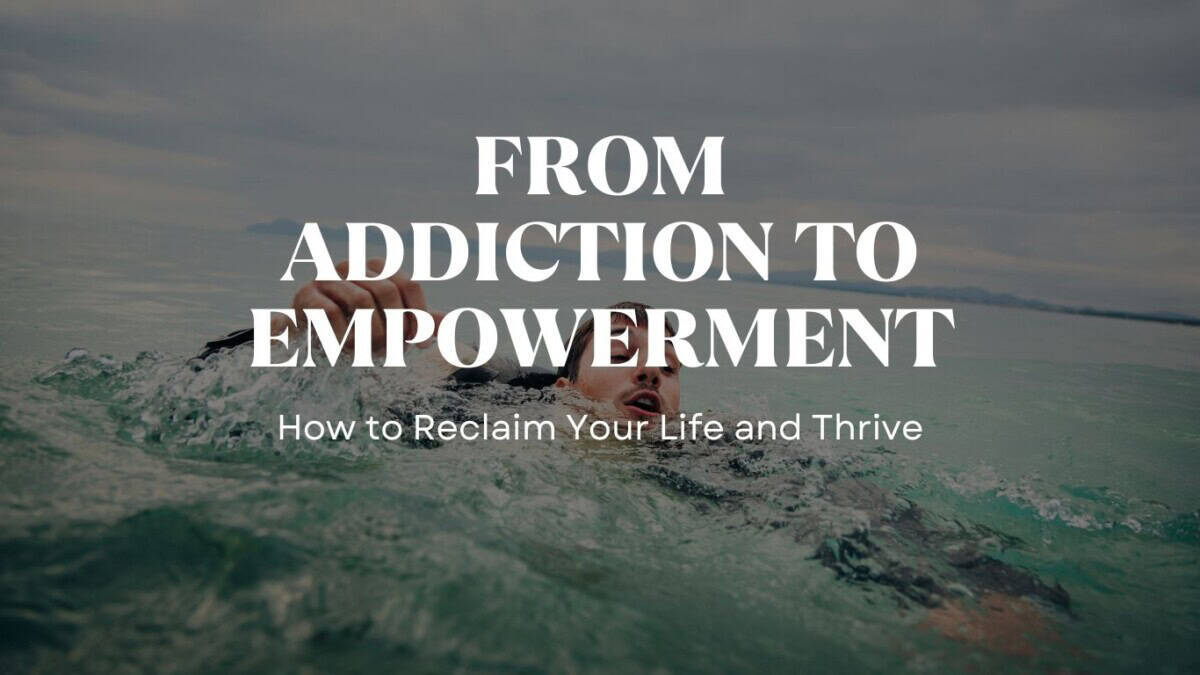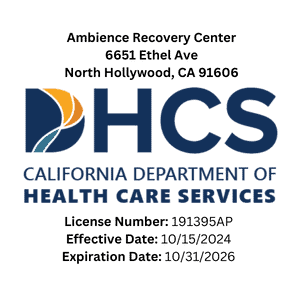Imagine standing at the edge of a canyon. You see a loved one being taken by addiction, like being pulled into a deep hole. This is what many people feel—watching someone they care about fight with addiction. Yet, in this tough situation, hope and strength start to grow. Both for those fighting the addiction and their supporters. Addiction doesn’t pick who it affects1. But breaking free and taking back control is a strong show of human will and the impact of support from others.
Addiction often comes with other mental health issues like schizophrenia or ADHD. Knowing this helps us see that addiction isn’t a choice or a sign of weakness. It’s a health problem that needs care, understanding, and a unique approach to get better1. The first step to recovery is seeing the signs of addiction. These signs affect every part of a person’s life, from health to emotions1. Getting help means understanding the disease’s complexity and how different factors play a part in it2.
Real healing happens with a big inner change. This means changing the mindset of addiction to one that promotes healthy living13. Support from loved ones is crucial. They guide the person towards recovery, where therapy and support groups offer help2. Then, lifestyle changes build the foundation for a new, healthy life free from addiction2. Celebrating every success, big or small, fuels the spirit of empowerment and shows how far the journey of recovery has come3.
This story of hard work and commitment carries a message of hope for everyone. Falling into addiction is hard, but it’s not a fight you have to face alone. It’s a chance to connect, to build understanding and to offer strong support. This marks the start of an incredible shift from being caught in addiction to living empowered lives. In this new chapter, reclaiming life is more than just getting by; it’s about flourishing.
Understanding the Addiction and Recovery Process
The journey to recovery is a complex mix of physical, mental, and emotional healing. Addiction often goes hand in hand with mental illness. This requires a well-rounded approach that tackles both the physical and psychological aspects4. Spotting the signs and symptoms of addiction marks the start of recovery.
To treat addiction, a mix of medical help and therapy is used. Drugs like methadone and buprenorphine help manage opioid addiction. This is often combined with therapies such as cognitive-behavioral therapy4. The goal is to reduce symptoms and help people stay sober over the long term.
- Relapse is common, similar to what happens with chronic conditions like hypertension4. This highlights the ongoing battle with addiction recovery.
- Thorough treatment programs tackle addiction and related mental, social, and work issues. This improves success rates4.
Knowing the stages of addiction recovery helps patients and their supporters. It moves from pre-contemplation to contemplation, then action, and finally maintenance5. Support is crucial during the maintenance stage to keep sobriety long-term5.
Addiction help programs give people the tools to handle triggers and stress. Such support is key in later recovery stages, requiring a strong commitment to change behaviors and continue therapy5.
- Behavioral therapy changes attitudes towards drug use and improves coping skills4.
- Medication helps lessen cravings and withdrawal, creating a stable base for ongoing recovery efforts4.
With continuous effort and a solid addiction support program, recovery is hard but full of growth chances. Combining medical and psychological support offers a better recovery outcome for people facing both addiction and mental illness4.
Reclaiming Life from Addiction
Starting a recovery journey is not just about stopping substance use. It’s about getting back the life and wellness lost to addiction.
Empathy as a Path to Healing
Empathy plays a huge role in keeping sobriety in the long run. It creates a caring, understanding space that supports healing. Dr. David G. Benner points out that addiction often comes from wanting control. Empathy breaks this by building trust and letting go in recovery6.
Navigating Addiction’s Mindset and Behaviors
Switching to a sober lifestyle means dealing with complex feelings and changing bad habits. The emotional pain stored in the right brain needs addressing for recovery. Research shows the brain can learn new, healthy habits, even overcoming addiction’s deep-seated patterns67.
Transformative Approaches to Addiction Support
Mindfulness-Oriented Recovery Enhancement, or MORE, has been a game-changer. It’s nearly three times more effective than traditional therapies in clinical trials. This method reduces addiction, depression, and PTSD symptoms terribly7. It is vital in finding joy post-addiction and boosting mental health.
Lifestyle Changes as Recovery Building Blocks
- Implementing structured routines to foster stability and predictability.
- Adopting healthy habits such as regular exercise and balanced nutrition which have been linked to a 50% increase in mental and emotional well-being8.
- Breaking down recovery goals into manageable tasks significantly boosts the celebration of small successes and ongoing motivation8.
Lifestyle changes are key in creating a new path to thrive and embrace the life meant for us by a higher power6.
Conclusion
Daniel’s story highlights the power of holistic strategies in beating addiction. At Meta Addiction Treatment, aspects like mindfulness and nutrition lay the foundation for lasting sobriety9. Recovery is tough, with problems like social stigma and mental health issues10. Yet, blending behavioral and cognitive therapy shows success, giving people the strength to change910.
Every step towards sobriety marks significant progress. Support from peers and family plays a big role in treatment plans. This support network helps tackle challenges like relapse risks910. Understanding addiction as a long-term issue means recognizing the need for multiple treatment efforts. Each try is a step closer to freedom from addiction9.
Daniel’s progress sheds light on sobriety’s benefits: taking back life’s control and mending relationships. Meta Addiction Treatment’s method focuses on nurturing the whole person for lasting recovery. By providing customized care in a loving setting, it fosters true empowerment that goes beyond just getting sober9.
FAQ
Q: How can someone begin reclaiming their life from addiction?
A: To reclaim life from addiction, one must first admit the need to change. Seeking professional help is crucial. This might mean visiting a doctor, joining a support group, or entering rehab. The first step to freedom from addiction and starting the recovery journey is essential.
Q: What role does empathy play in supporting someone through recovery?
A: Empathy is key in recovery. It means listening and understanding the struggles of someone fighting addiction. It’s offering support without judging. Empathy builds trust, improves talking, and helps in beating addiction.
Q: What are transformative approaches to addiction support?
A: Transformative approaches include more than just common treatments. They use practices like mindfulness, meditation, and art therapy. These methods address deep issues and help in personal growth. They are key for sobriety and self-discovery.
Q: Are lifestyle changes important in the recovery journey from addiction?
A: Indeed, changing one’s lifestyle is critical during recovery. It involves setting a routine, working out, eating well, and making good friends. These steps support sobriety and happiness post-addiction.
Q: What is the connection between addiction and mental illness?
A: Often, addiction and mental illness happen together. Issues like schizophrenia or ADHD might lead to addiction. Treating both is vital for overall recovery and long-term health.
Q: What are the signs and symptoms of addiction?
A: Addiction signs vary but can include physical changes like weight fluctuation, sleep problems, and poor hygiene. Behavioral signs are social withdrawal, strange actions, and ignoring duties. People may also experience moodiness, anger, or sadness.
Q: What should someone do if they are seeking help for addiction?
A: Those needing help should talk to a health expert or find a support program. Confidential advice lines also exist, offering help and pointing to the right treatment.
Q: Can addiction be treated successfully?
A: Yes, addiction can be overcome. Treatments include medication, therapy, and support groups. Recovery is personal, so treatment should match individual needs.
Q: How can family and friends support a loved one’s recovery journey from addiction?
A: Family and friends can learn about addiction, give emotional support, push for treatment, and join counseling. Setting boundaries and clear communication are important. They must also take care of themselves.
Q: What is the importance of aftercare in addiction recovery?
A: Aftercare stops relapse and supports sober life challenges. It may involve continuing therapy, joining support groups, and doing community activities. These help keep up recovery efforts and maintain new habits.
Source Links
- Addiction: Unraveling the Tangled Web of Drug Addiction – https://livewellandfully.com/addiction/
- How to Overcome an Addiction – https://www.coniferpark.com/blog/how-to-overcome-addiction
- How Addiction Freedom Can Change Your Life – https://www.perennialrecovery.com/blog/addiction-freedom-change-your-life
- Treatment and Recovery | National Institute on Drug Abuse – https://nida.nih.gov/publications/drugs-brains-behavior-science-addiction/treatment-recovery
- What Are the Stages of Addiction Recovery? | Recovery at the Crossroads – https://www.racnj.com/the-five-stages-of-addiction-recovery/
- Addiction: Reclaiming Your Life — Hardin Life Resources – https://www.hardinlife.com/blog/2021/8/1/addiction-reclaiming-your-life
- Reclaiming Meaning in Life After Addiction, Stress, and Pain – https://www.psychologytoday.com/us/blog/reclaiming-a-meaningful-life/202404/reclaiming-meaning-in-life-after-addiction-stress-and-pain
- Reclaiming Your Life From Drug Addiction – https://medium.com/@walktothelight/reclaiming-your-life-from-drug-addiction-9a91e9710b77
- What Makes Addiction Recovery a Challenging Process? – https://www.coniferpark.com/blog/addiction-recovery-a-challenging-process
- Focus: Addiction: Relapse Prevention and the Five Rules of Recovery – https://www.ncbi.nlm.nih.gov/pmc/articles/PMC4553654/
Katie is a Licensed Clinical Social Worker who has worked as a primary therapist, supervisor, and now clinical director for SUD/MH treatment centers for the past 12 years. Katie is trained in Brainspotting, EMDR, Internal Family Systems and Dialectical Behavior Therapy and is passionate about treating substance use disorders, trauma and grief.






